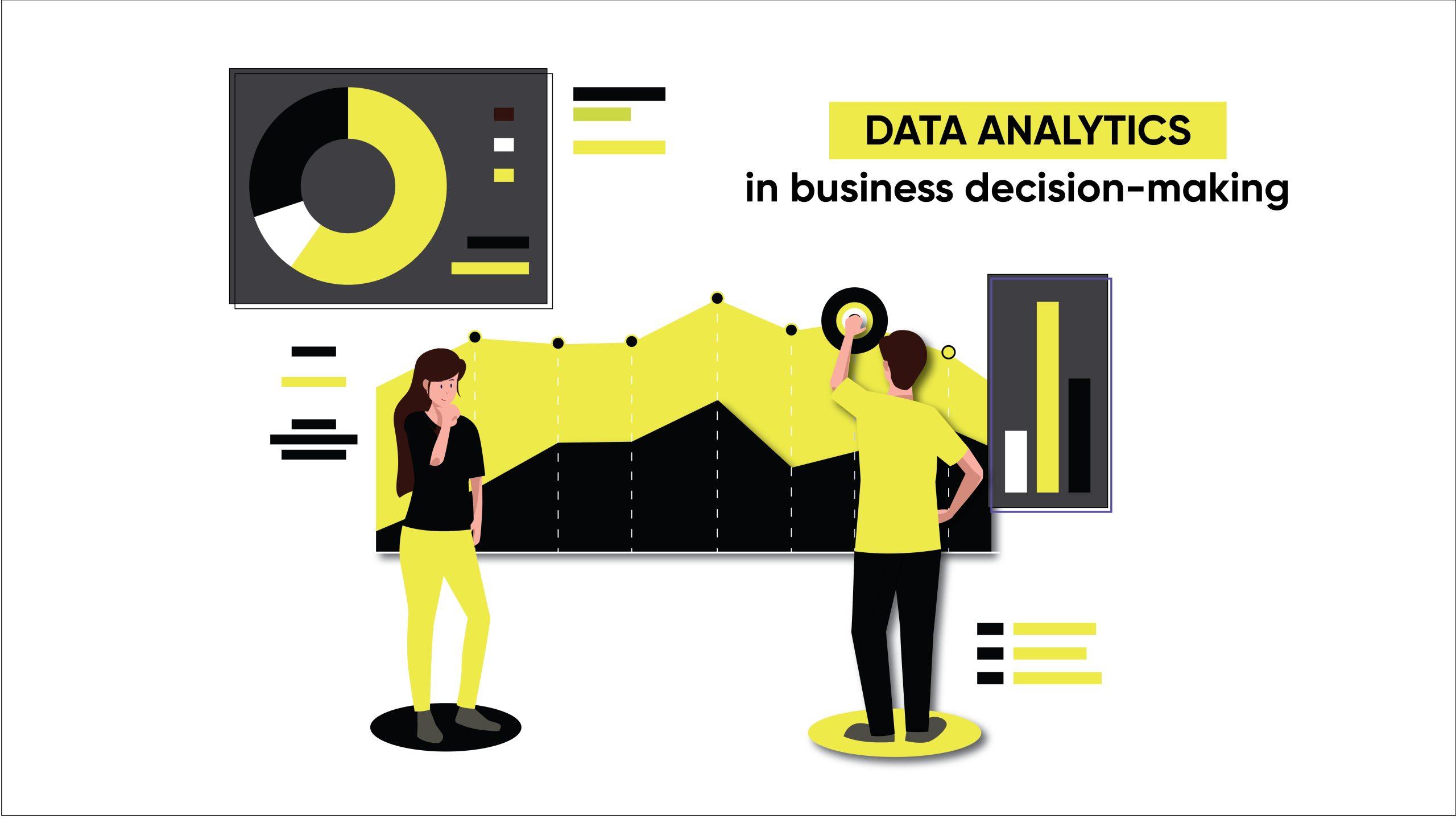
Introduction
Businesses are no longer mind-readers; they’re data-readers.
Readers which are transforming information into action and analytics into achievements.
Data from various sources enables businesses to apply advanced analytics tools and techniques to make evidence-based decisions rather than relying on intuition.
This whole process involves analysing data to find answers, discover patterns, and extract insights that support business decisions.
Overall, inclining customer preferences, market dynamics, competitive advantages, and other drivers of their success.
Applications of Data Analytics
Applying data analytics can help businesses in different domains, such as marketing, finance, and operations.
In Marketing,
By executing data analytics in marketing, businesses can learn about customer habits, desires, and movements in marketing. This allows businesses to design specific marketing plans, individualize customer experiences, and improve the ROI of their marketing activities.
In Finance,
Cost management and decision-making in finance rely heavily on data analytics. It can assist businesses with fraud identification, risk evaluation, investment oversight, and financial design. Businesses can analyse financial data to discover areas for development, detect potential risks, and make rational financial decisions.
In Operations,
Businesses can analyse data related to their operations to discover areas for improvement, distribute resources effectively, and expedite processes. This can generate substantial cost savings and higher customer satisfaction.
In Sales,
Sales in data analytics involves leveraging data to make the sales process better and the business more successful. It looks at how customers act, what the market is like, and other important data. Data analytics can also guess what sales will be like, choose the best prices, and make marketing more personal, which makes sales more successful.
Why Data Analytics Matters for SMEs?
Improve Decision-Making:
- Use a dashboard that shows the most important metrics (KPIs) for easy and smart decision-making.
- Example: A retail SME used sales data to manage its inventory better, avoiding excess stock and making more money.
- Data analysis can help SMEs make better decisions based on facts, not guesses. It can also help them monitor their performance and identify areas for improvement.
Know Customer Behaviour:
- Use CRM tools to collect and study customer data. Example: A service-based SME customized its services based on customer needs, making customers happier and more loyal.
- Data analysis can help SMEs understand their customers better, such as their needs, preferences, behaviour, and feedback.
- It can also help them create more effective marketing campaigns and increase customer retention.
Operations:
- This can help SMEs optimise their processes, reduce costs, increase efficiency, and improve quality.
- For example, operations research can help SMEs design better production schedules, inventory systems, logistics networks, and quality control methods.
Marketing Research:
- Research can guide SMEs understand their customers, competitors, and markets better, and develop more effective marketing strategies.
- For example, marketing research can help SMEs segment their customers, identify their needs and preferences, measure their satisfaction and loyalty, and tailor their products and services accordingly.
Implementing Data-Driven Strategies
To use data analysis effectively, you need tools that are easy to use. Here are some options that are simple and convenient:
Google Analytics:
Practical Use: Monitor web performance, user engagement, and conversion outcomes. Example: An e-commerce business analysed customer preferences and improved the website usability, resulting in higher revenue.
Microsoft Power BI:
Practical Use: Build dynamic dashboards for instant data insight. Example: A consulting firm managed project schedules and resource distribution, enhancing project delivery quality.
Challenges and Solutions
Adopting data analysis can present obstacles, including concerns over data security and privacy. Nonetheless, SMEs can surmount these challenges by:
Investing in Robust Data Security:
- Implement robust encryption and stringent access controls to safeguard critical data.
- Example: A financial services SME achieved compliance with data security regulations, thereby bolstering customer confidence.
Elevating Employee Expertise:
- Conduct comprehensive training programs to improve employees’ data handling skills.
- Example: A healthcare SME enhanced patient services by equipping its staff with the skills to analyse patient data with precision.
Hence, the transformative power of data analytics in the business landscape cannot be overstated. As businesses shift from intuition-driven decisions to evidence-based strategies, the role of data in shaping success has become indispensable.
Data-readers, not mind-readers, are the new paradigm for business success. Data analytics provides strategic insights for informed decision-making and growth.
To thrive in the data-driven era, businesses need to derive insights from various data sources. Data analytics is a key factor for competitive advantage and sustainability.







